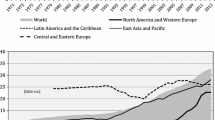Abstract
In developing countries, universities have been criticised on many grounds: excessive capital and recurrent costs, grave social opportunity costs, forms of regressive taxation, social divisiveness, failure to produce the right kind of manpower to promote social and economic development, failure to advance science and technology. Despite these charges, university enrolments continue to expand.
The main explanation seems to be the assumption that there is no alternative to the university as the sole effective producer of high level manpower, whether through directly professional studies or through courses in the social sciences and humanities. This article questions the pedagogical bases of both forms of study as preparations of manpower for employment. Pre-career professional studies appear to be an unsatisfactory compromise between the traditional idea of a university and the particular needs of professional apprenticeship. With the social sciences and humanities, the transferability of disciplinary skills to forms of employment only tangentially related to them appears uncertain.
Although the function of manpower development may be inappropriate to the universities, it in fact dominates their existence and underdevelops their other roles as centres of research, scholarship and cultural development. Indeed, universities seem to be losing these distinguishing characteristics to special institutes, which devote themselves primarily to research and only at will to teaching. By undertaking to do what they can only do badly and consequently failing to do what they might do well, universities in developing countries may constitute frauds upon their peoples.
Similar content being viewed by others
References
Berg, Ivar (1970).Education and Jobs: The Great Training Robbery. Harmondsworth: Penguin.
Brooke, N., Oxenham, J., Little, A. (1978). “Qualifications and employment in Mexico,” Research Reports, Sussex, Institute of Development Studies.
Goody, J., (ed.), (1968).Literacy in Traditional Societies. Cambridge: Cambridge University Press.
IDS Bulletin (1980). Vol. 11, No. 2 (June). “Education or selection?” Sussex Institute of Development Studies.
Jay, A. (1980). “Nobody's perfect — but a team can be,” pp. 26–38, inThe Observer Magazine. 20th April, 1980. (Supplemented by private correspondence with Dr. Meredith Belbin, Director of the Industrial Training Research Unit Ltd.)
Jolly, R. (1977). “The provision of education and its costs,” Seventh Commonwealth Education Conference, London, Commonwealth Secretariat.
Moorhouse, G. (1977).The Diplomats: The Foreign Office Today. London: Jonathan Cape.
Oxenham, J. (1980).Literacy: Writing, Reading and Social Organisation. London: Routledge and Kegan Paul.
Scribner, S. and Cole, M. ( 1978). “Literacy without schooling: testing for intellectual effects,” inLiteracy Research in Developing Countries. International Development Research Centre and German Foundation for International Development, DOK 1007 C/a.
Tanzania, Republic of (1976). “Manpower development circular letter No. 4 of 1976,” Dar Es Salaam: Ministry of Manpower Development.
Whitla, D. (1977).Value Added: Measuring Outcomes of Undergraduate Education. Harvard University Office of Instructional Research and Evaluation.
Author information
Authors and Affiliations
Rights and permissions
About this article
Cite this article
Oxenham, J. The university and high level manpower. High Educ 9, 643–655 (1980). https://doi.org/10.1007/BF02259971
Issue Date:
DOI: https://doi.org/10.1007/BF02259971




